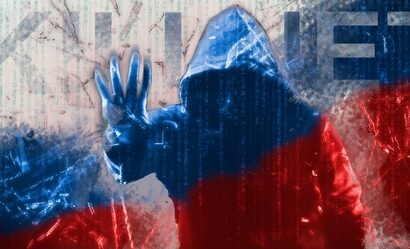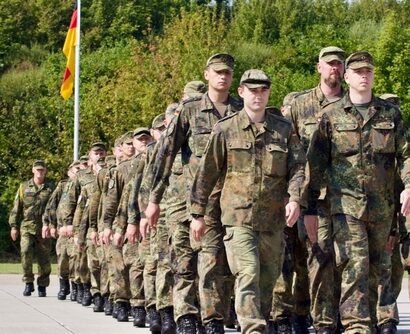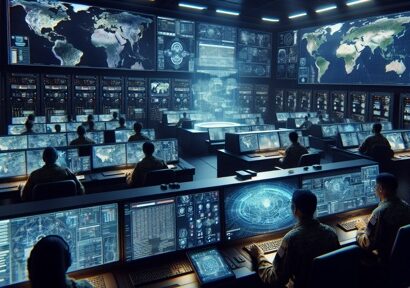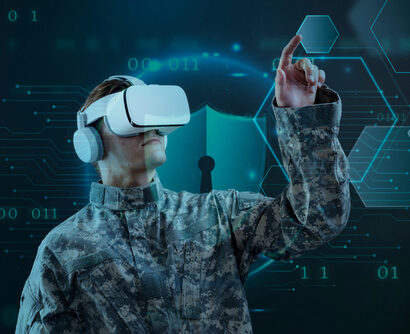Abstract: The burgeoning relationship between the People’s Republic of China (PRC) and Russia has reached unprecedented levels, especially with the onset of the ongoing Ukraine war. This article uncovers the intriguing reasons behind the PRC’s bold support for Russia amid the Ukraine war, exploring how the war has benefited Beijing. With a dual gamble, positioning itself as a potential broker for the West and pursuing all sorts of trade with Russia, the PRC is not just a bystander in this conflict.
Problem statement: Why is the PRC providing a support system to Russia amid the Ukraine war against the West and NATO?
So what?: If the great economic powers like the PRC keep on being a support system to Moscow against the West and NATO for self-interest, the distortion in Eastern Europe and the war in Ukraine can endure till the next years.
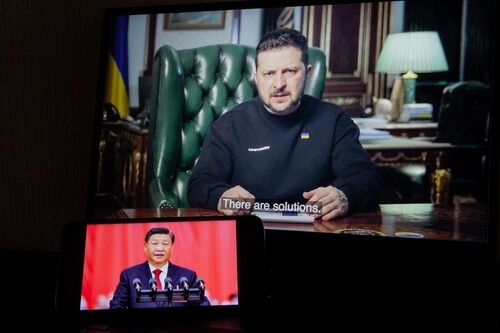
Source: shutterstock.com/KurKestutis
China Bears Pointed Fingers for Moscow
The Federation of Russia recently reminded the global powers-in its own words-of its strong alliance with Beijing when, once again, President Vladimir Putin backed the Chinese stance on Taiwan.[1] The two countries have stood closest to ever since the break of the Ukraine war against the West and North Atlantic Treaty Organization. Beijing has tolerated much indignation and pointed fingers at its foreign policy to support Russian actions in Ukraine. NATO members maintained a firm hope that the People’s Republic of China (PRC) would play the role of a mediator, demanding an instant cease to Beijing’s political and material support for Russia. In July 2024, Ukraine’s Minister of Foreign Affairs, Dmytro Kuleba, met with Chinese diplomat Wang Yi in Beijing to foster a mediation effort aimed at resolving the Ukraine war with Russia.[2] Beijing kept downcasting all their anticipations, choosing not to attend peace talks and summits, constantly cherry-picking Moscow over them. Meanwhile, Kyiv legitimately took the war to Moscow territory with the infiltration in Kursk, which again sparked the inquisitions concerning the future of this full-scale war. However, this is the most mainstream enquiry of political scientists since the break of the invasion in February 2022. The less streamed yet important inquisition is now gauging up.
Before, NATO and the West had alleged that the PRC was bolting against them with unwavering support to Moscow in all domains.[3] On the 75th anniversary of the alliance, Jens Stoltenberg called the PRC a ‘decisive enabler’.[4] He clarified: “I think the message sent from NATO from this summit is very strong and very clear, and we are clearly defining the PRC’s responsibility when it comes to enabling Russia’s war.”[5]
NATO and the West had alleged that the PRC was bolting against them with unwavering support to Moscow in all domains.
After two years of Russian invasion, Ukrainian President Volodymyr Zelenskyy, who had not directly accused Beijing of its involvement with Russia,[6] openly alleged it to be the proponent behind Russian advancement in the war. In the past months, the PRC and the U.S. have positively engaged in mending the bunged ties. It was now that the Biden administration agreed to bring pandas back to American zoos,[7] signalling a desire for warmer relations with Xi’s presidency. In August 2024, Jake Sullivan, National Security Advisor of the U.S., expressed commitment to the goal of a stable, healthy, and sustainable development of the relations.[8] After years of Russian invasion, the Ukrainian forces penetrated the Kharkiv region to make it vulnerable for Vladimir Putin to fight at both ends. Still, the PRC’s lifeline role in the layout is incredibly making it difficult to achieve. Russia might have gone broke because of a deficiency in ammunition production. Still, as Reuters reports on the Chinese monthly illicit export of chips and microelectronic components essentially used in the craft of munitions[9] and drones, it is bolstering the Russian run on the battlefield. Yet again, this marks the first time Nicholas Burns, U.S. Ambassador to the PRC, also accuses Beijing of providing support to Russia’s war machine.[10]
So far, the PRC keeps facing a barrage of criticism aimed at its global image and provides Russia with substantial support, stopping short of direct military involvement in the Ukraine war. The latest it suffered was the United States Treasury sanctions on 42 Chinese suppliers.[11] The sanctions hold them relevant in the export of lethal weapons and components, allowing Moscow to continue the crime of aggression in Ukraine.[12]
Japan Institute of Foreign Affairs remarks on Chinese Foreign Policy: “Although China recognises this Russian wariness, it has put on a display of harmonious relationship between the two countries because of strategic necessity”. Chatham House, in the year 2016, notified: “There is the danger of an increased Chinese presence in neighbouring regions stimulating fears about Beijing’s long-term intentions. For example, no matter how close Sino-Russian relations may be at present, especially given Russia’s chilly relations with the West over the conflict in Ukraine”.[13]
The compromises of Beijing for Russia, weathering significant criticism globally and bearing new sanctions from the U.S., suggest new proportions. The concessions to Russia will likely conceal deeper motivations than an ideological collaboration. The Ukraine war allowed the PRC to play a sophisticated dual role. The PRC puts up openness as a peace broker to West-NATO and lends machinery to Moscow to wage the war.[14] The Foreign Ministry of the PRC offered a document with peace plans to end the war in Ukraine. Still, it abstained from voting on United Nations resolution ES-11/6, which demanded the withdrawal of Russian troops from the ground.[15], [16] This dual-calculated gamble allows it to manoeuvre on the two fronts. With the West engaged in settling the war in Ukraine, the other opportunity Beijing relishes is to keep away the essential focus from its increasing presence in the Taiwan Strait and violations in Hong Kong.
The PRC puts up openness as a peace broker to West-NATO and lends machinery to Moscow to wage the war.
The PRC is now reaping maximum economic benefits with Russia as the Ukraine war offered full control of its energy supplies, chiefly oil and natural gas.[17] It is engaging in trade with Moscow at its own discounted prices in the raw materials, technology and defence.[18] With the bulky sanctions drawn on the Kremlin, it understands its good chances to create a financial framework of currency swap that diminishes reliance on the U.S. dollar. It has made strides to engage in Yuan-dominated trade with Russia and its allies.[19] The U.S. sanctions are already stressing European trade, just like Hungary expressed concern over the imposed sanctions on Russia. Brazil, Serbia,[20] Belarus, Venezuela,[21] and other states are fostering a Yuan trade relationship with the PRC and Russia.[22]
At hand are more underlying motivations, one of which has already been uncovered. Beijing’s entry into the Arctic region with Moscow is the new blow. The Chinese coast guards claimed to enter the waters of the Arctic Ocean in a joint exercise with Moscow for the first time. In history, Russia has been reluctant to let any foreign entity step into the Arctic parameters. Analysts believe that in the wake of the Ukraine war, Russia’s increasing economic and diplomatic reliance on the PRC has tuned its priorities. The significant role of the PRC in the Ukraine conflict cannot be ignored. With the mobilisation of thousands of North Korean troops in Kyiv, the PRC is receiving new pleas from the West and NATO members to support the withdrawal and curb military escalation in Ukraine.[23]
With the mobilisation of thousands of North Korean troops in Kyiv, the PRC is receiving new pleas from the West and NATO members to support the withdrawal and curb military escalation in Ukraine.
The Ukraine war is, therefore, unpacking new opportunities for Beijing. With the inrush of North Korean troops, it is yet to see if the PRC’s shuttle diplomacy as a peace broker for the West will continue along the war machine supplies in allyship to Moscow. The PRC is enhancing its geopolitical influence by positioning itself as both a potential mediator and a steadfast ally to Russia while securing vital economic and strategic interests. The Kremlin’s reaping trade and diplomatic dependency on the PRC during the invasion of Ukraine has gauged us to imagine a PRC that is not just a bystander but a puppet master, pulling strings on the global stage as the supreme opportunist and beneficiary of the Ukraine war.
Ramla Khan serves as Senior Officer at a non-profit organisation based in Berlin. She is a member of the editorial team of Revista de Geopolítica Sao Paulo, Brazil. Her writings have appeared on various international platforms in Europe, Asia and South America since 2017. She writes on matters of global security, maritime policy and disinformation operations strategy with a special focus towards development in the South Asia and Eastern Europe Region. Her work is further enriched with exclusive interviews of distinguished experts from Ukraine, the United Kingdom, Hong Kong, and the United States. The views contained in this article are the author’s alone.
[1] Vladimir Putin, “Putin Says China Is Russia’s Ally, Backs Its Stance on Taiwan,” Reuters, November 07, 2024, https://www.reuters.com/world/putin-says-china-is-russias-ally-backs-its-stance-taiwan-2024-11-07/.
[2] The Diplomat, “Why China Isn’t Ready Yet to Mediate a Russia-Ukraine Peace Deal,” The Diplomat, July 26, 2024, https://thediplomat.com/2024/07/why-china-isnt-ready-yet-to-mediate-a-russia-ukraine-peace-deal/.
[3] Bloomberg Television, “NATO Calls Out China for Supporting Russia,” July 11, 2024, https://www.bloomberg.com/news/articles/2024-10-15/stock-market-hits-record-high.
[4] Dan Sabbagh, “NATO Summit: Russia-Ukraine War and China as an Enabler,” The Guardian, July 11, 2024, https://www.theguardian.com/world/article/2024/jul/11/nato-summit-russia-ukraine-war-china-enabler.
[5] Dan Sabbagh, “NATO Summit: Russia-Ukraine War and China as an Enabler,” The Guardian, July 11, 2024, https://www.theguardian.com/world/article/2024/jul/11/nato-summit-russia-ukraine-war-china-enabler.
[6] “Zelenskyy Finally Calls Out China’s Role in Russia’s War on Ukraine,” The Diplomat, June 2024, https://thediplomat.com/2024/06/zelenskyy-finally-calls-out-chinas-role-in-russias-war-on-ukraine/.
[7] “Pandas Arriving in San Diego from China,” *NBC News*, September 27, 2024, https://www.nbcnews.com/news/world/pandas-arriving-san-diego-china-rcna158541.
[8] Dan De Luce and Rebecca Shabad, “Jake Sullivan: China’s Xi Jinping Is ‘Not a True Partner’ of Joe Biden,” NBC News, May 26, 2024, https://www.nbcnews.com/news/world/jake-sullivan-china-joe-biden-xi-jinping-rcna168350.
[9] “Illicit Chip Flows to Russia Seen Slowing, but China, Hong Kong Remain Transshipment Hubs,” Reuters, July 21, 2024, https://www.reuters.com/technology/illicit-chip-flows-russia-seen-slowing-china-hong-kong-remain-transshipment-hubs-2024-07-21/
[10] Barbara Slavin, “China Is Aiding and Abetting the Russian War Machine, Says U.S. Ambassador to China Nicholas Burns,” Atlantic Council, June 12, 2024, https://www.atlanticcouncil.org/blogs/new-atlanticist/china-is-aiding-and-abetting-the-russian-war-machine-says-us-ambassador-to-china-nicholas-burns/.
[11] “U.S. Imposes Sanctions on 400 More Targets Aiding Russia’s War Effort,” Reuters, August 23, 2024, https://www.reuters.com/world/us-imposes-sanctions-400-more-targets-aiding-russias-war-effort-2024-08-23/.
[12] Japan Institute of International Affairs (JIIA), China’s Foreign Policy and Other Countries’ China Policies, JIIA Strategic Annual Report 2019-04, March 2020.
[13] Peter Ferdinand, Westward ho—the China Dream and ‘One Belt, One Road’: Chinese foreign policy under Xi Jinping, Chatham House, 2016, https://www.chathamhouse.org/publication/westward-ho-china-dream-and-one-belt-one-road.
[14] CNN, “China’s Stance on NATO, Russia, and Ukraine Explained,” CNN, July 11, 2024, https://edition.cnn.com/2024/07/11/china/nato-china-russia-ukraine-intl-hnk/index.html.
[15] Sky News, “Ukraine Invasion: China Abstains from Voting on UN Security Council Resolution Condemning Russia,” Sky News, February 25, 2022, https://news.sky.com/story/ukraine-invasion-china-abstains-from-voting-on-un-security-council-resolution-condemning-russia-12551720.
[16] United Nations General Assembly, Resolution ES-11/6: Aggression against Ukraine, A/RES/ES-11/6, United Nations General Assembly, December 02, 2022, https://undocs.org/A/RES/ES-11/6.
[17] Jonathan Hillman, “China’s Aid in the Ukraine War,” Harvard International Review, August 01, 2024, https://hir.harvard.edu/chinas-aid-in-the-ukraine-war/.
[18] Alexander Gabuev, “Russia’s Fiscal Dependence on China Grows,” The Jamestown Foundation, April 19, 2024, https://jamestown.org/program/russias-fiscal-dependence-on-china-grows/.
[19] Andrey Kortunov, “China-Russia: The Yuan’s Role in the Bilateral Relationship,” Carnegie Endowment for International Peace, May 2024, https://carnegieendowment.org/russia-eurasia/politika/2024/05/china-russia-yuan?lang=en.
[20] The Conversation, “War in Ukraine Might Give the Chinese Yuan the Boost It Needs to Become a Major Global Currency and Be a Serious Contender Against the US Dollar,” The Conversation, December 14, 2024, https://theconversation.com/war-in-ukraine-might-give-the-chinese-yuan-the-boost-it-needs-to-become-a-major-global-currency-and-be-a-serious-contender-against-the-us-dollar-205519.
[21] Trading Economics, “China Currency,” Trading Economics. Accessed December 19, 2024, https://tradingeconomics.com/china/currency.
[22] China Briefing, “China-Austria Trade and Investment Profile and Key Developments,” China Briefing, December 19, 2024, https://www.china-briefing.com/news/china-austria-trade-and-investment-profile-and-key-developments/.
[23] Molly Carlough, “China-Russia Relations: November 2024,” Council on Foreign Relations, last modified November 2024, https://www.cfr.org/article/china-russia-relations-november-2024.


